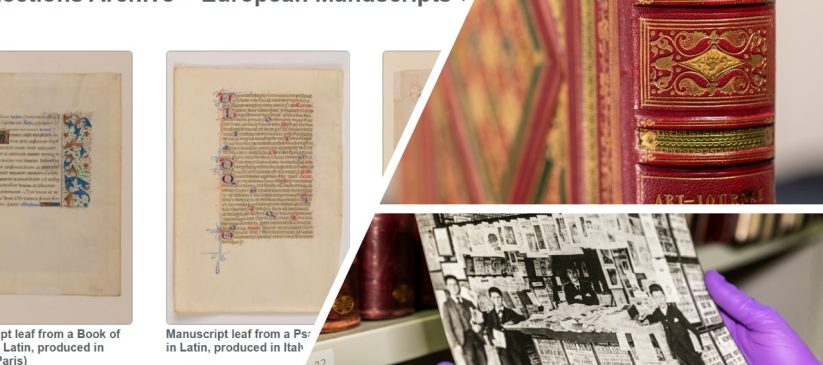2020 Vision: a Year in the Life of the Archive and Library Team

In 2020, The MERL and University of Reading Special Collections archive and library team faced an unprecedented situation. We closed our reading room and our access to the physical collections was severely limited. We lost the framework for providing our basic service, but this was not the defining factor of 2020 for the team. In the year when we were unable to invite researchers to consult the collections in person, we made them more accessible than they have ever been before.
The team (aided by some of our dedicated volunteers) set to work on converting paper catalogues, usually only available to researchers onsite, into spreadsheets which were then imported into the database, meaning that they are now searchable online. We added 18,404 new records to ADLIB with an extra 27,656 edited and improved records too. Cataloguing and preservation of library collections continued apace, with the completion of the Wizard of Oz and Frank Duffy library collections and the beginnings of cataloguing the many thousands of books in the Mills & Boon Collection.
On 1 May we launched two new websites: the new Special Collections website and the University of Reading Museums and Collections Portal. For the first time, all of the University’s collections and catalogues are accessible in one place. We continue to add new collection pages with more information about the people and organisations they relate to, as well as up to date lists of contents of each collection.
We launched a Digital Access to Collections service after the first lockdown on 14 July. Staff had limited access to the building to provide copies for researchers throughout the summer, but since then we have provided over 6000 scanned pages of material for researchers around the world. In particular, this enabled students to continue their studies with minimal disruption, something we are very proud of. This service continues to offer access to the collections during the current lockdown.
The reading room re-opened for socially distanced study from September 8 until December 17. We offered reduced opening hours (Tuesday- Thursday) and only one researcher was able to use a desk each day, with cleaning taking place when archives and rare books had been removed. Despite these limitations, we facilitated 213 research visits in that time. We look forward to opening our doors again to researchers when it is safe to do so.
With digital access to collection in mind, we launched our Virtual Reading Room on 21 September, which allows exploration of high-quality digital versions of books and documents by registered users, as well as providing galleries of images for all to explore. Over 200 researchers have registered, and this figure continues to rise. Not only has this proved a useful tool for research, it has also played a key role in collections teaching with 437 digital assets added to it already for this purpose. Hundreds of Special Collections images are also now available for the first time via the global platform of Google Arts & Culture.
We stayed connected with our followers on our Special Collections Twitter and Instagram, posting regular content celebrating the incredible diversity of the collections. When we reviewed the situation in the Autumn, we found that since mid-August our tweets had been seen 185,000 times and our Instagram had accrued an impressive 8000 impressions since the summer. Our followers on these platforms continue to grow and by sharing images and stories of our collections, we’re not just increasing awareness of our fabulous holdings but reminding people that we’re here, still busily working to make collections accessible to as many people as we can and trying to make this otherwise sterile time a little more bearable.
The collections form a core part of many modules taught at the University of Reading and other institutions too. But the need to socially distance and quarantine collections forced a rethink on the way we provide collections support. We put together a detailed package of support and offered this to our academic colleagues ahead of the Autumn term. Across the term, we hosted 21 sessions across 6 modules, 141 students and introduced them to 306 different collection items. This was achieved both in person and digitally, incorporating a variety of methods from our support package. We also hosted our first remote live teaching session with the Manchester School of Architecture, supported 3 History placement students and delivered teaching about collections on a new joint module, Shelf Life, with the Department of English.
2020 might be defined as the year of COVID-19, but for us it was also the year we took huge steps forward with our collections service.
One thought on “2020 Vision: a Year in the Life of the Archive and Library Team”